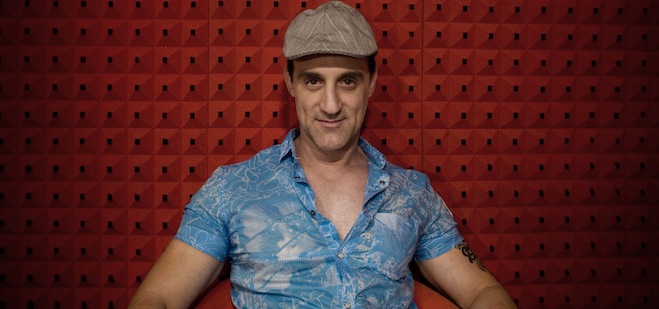TIFF 2012: Our Italian on staff reviews Matteo Garrone’s ‘Reality’
Hint: It’s not about reality TV. It’s about Italy
Share
I am a little puzzled by the North American reviews of Matteo Garrone‘s Reality. The Italian director’s latest movie, a comedy/drama about Luciano (Aniello Arena), a Neapolitan fishmonger who becomes obsessed with the local version of Big Brother, has been called everything from “disappointingly obvious” and “unfunny” to a sappy version of the Truman Show.
The Globe and Mail reads:
The unsubtle theme about the quasi-religious nature of celebrity worship lacks any real satirical bite, spinning its wheels with too many scenes of the deluded Luciano and his sprawling family.
Even Torontoist, which seems to have liked the film well enough, dubs it “as subtle as a hammer to the face.”
It’s been quite a different reception from the one the film received in Europe, where it won the Grand Prix at the Cannes Film Festival, just like Garrone’s much better received Gomorrah from 2008.
I’ll have to side with Europe on this one. I thought Reality was wonderful. And I thought it was about Italy, not reality TV. I entirely agree that any new film trying to make the point that shows like Big Brother have become the hollow religion of modernity has missed the bus. What a supremely unoriginal and boring theme. But I never would have guessed people would see that in Garrone’s Reality (thankfully I hadn’t read the reviews before I saw the movie).
When he stepped onto the stage to take questions from the audience at Wednesday’s TIFF screening, Garrone graciously declined to feed us his own interpretation, so I have no way of claiming that my own is better than anyone else’s. Still, for what it’s worth, here’s what an Italian émigré with a political science degree and an embarrassingly short memory for film titles saw in Reality.
I saw an uncannily vivid and nuanced portrayal of my native country. The story of Luciano, a full-time fish seller and part-time scam artists in Naples, who auditions for Grande Fratello, the Italian version of Big Brother, and never gets a casting call, evoked a familiar vortex of conflicting feelings. What’s there not to love about Luciano, the histrionic father of two who’ll wear a blue wig and red pumps and make his family cry tears of laughter? How does your heart not sink when his numerous, super-sized relatives leave an outrageously tacky wedding to come home to one of Naples’ blue-collar neighbourhoods, where condominiums have no elevators and one must carry one’s own wheel-chair bound uncle on one’s back; where you can see people’s bedroom from the street because there’s no other room apart from the kitchen and the bathroom?
Yet, Luciano is also the guy who’ll push away and swear at a visibly deranged beggar pleading for some food—a scene I witnessed in lower case “r” reality many times over. At the beginning of the movie , he and his wife Maria, a heart-warming, close couple, supplement their income by defrauding the consumer electronics firm where she works. And Luciano’s fun-loving relatives soon start to feel asphyxiating—the Globe complains about “too many scenes of … the sprawling family,” but I suspect that’s a very intentional choice by the neorealist Garrone. When Luciano desperately grasps onto Grande Fratello as a chance to “do something with my life,” as he puts it, you know exactly where he’s coming from. And that’s why, as absurd as his obsession is, you can’t just dismiss him as an unworthy fool. That’s why, as disgusting and depressing as the images of semi-naked Big Brother contestants cavorting on camera are, you can’t help but feel for that grown man staring at the screen with child-like wonder.
Even Garrone’s much-criticized portrayal of religion actually seemed everything but “unsubtle.” There’s the feisty old lady trying to scam the scam-artist between one Hail Mary and another. There’s Luciano’s family, as attached to Catholic traditions as it is to a TV program that is one small step removed from porn. And then there’s Luciano’s own bigoted conflation between Christianity and reality TV. But there’s also Luciano’s friend (Nando Paone), a good man and a true believer: Religion doesn’t have to be a fable about eternal reward for good behaviour.
Reality walks a fine line between the real and the fantastic, but Garrone manages an even more perilous balance between love and disgust. He delivers a damning critique of a listless society without preaching, and without condemning.
They say this movie didn’t live up to the realism of Gomorrah. But I, a middle-class Milanese, haven’t the faintest idea what it means to experience the reach of the Camorra, or organized crime in general, on one’s community. Gomorrah to me was as much an instructive documentary as it would be for any Canadian.
Reality was much, much closer to reality for me.
